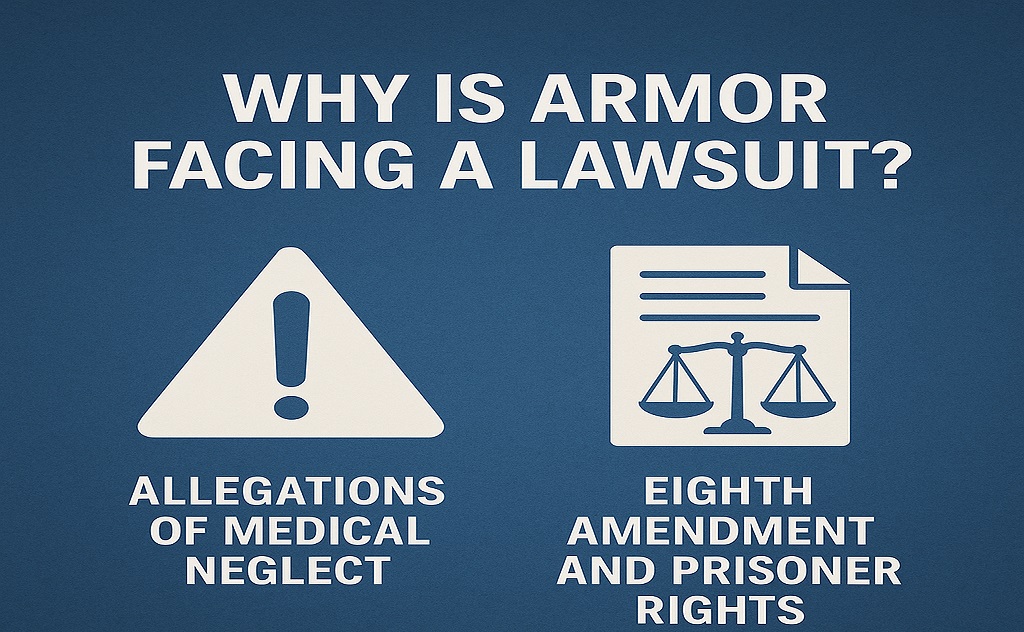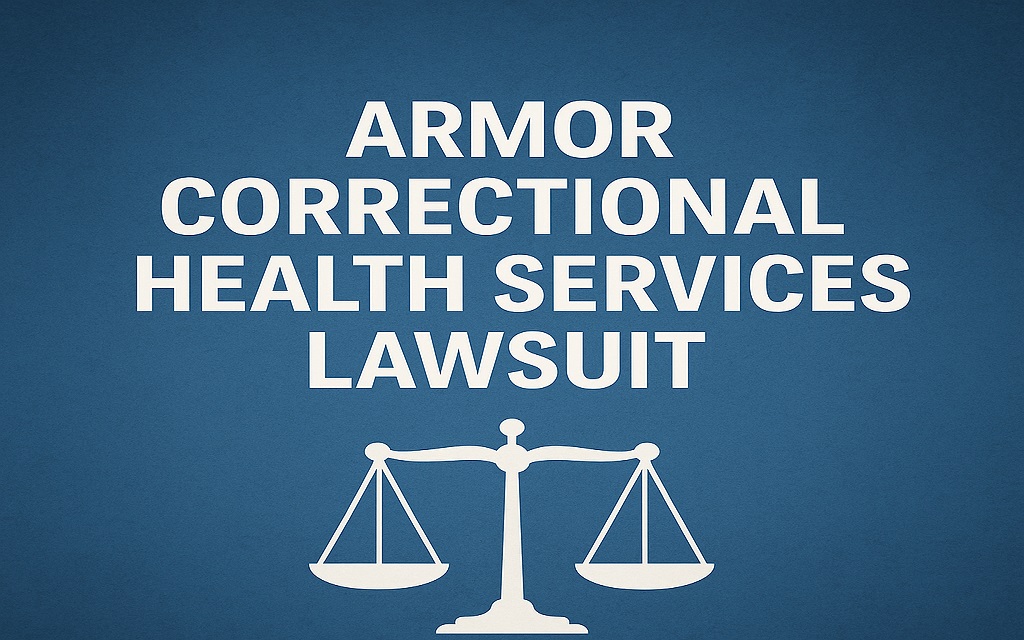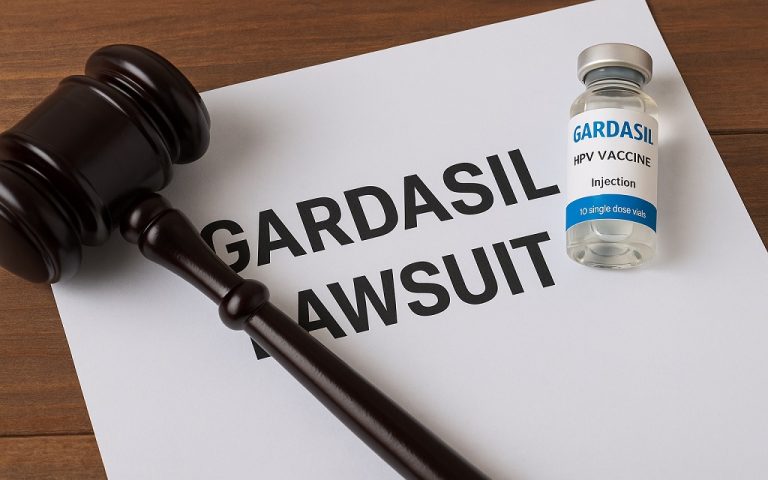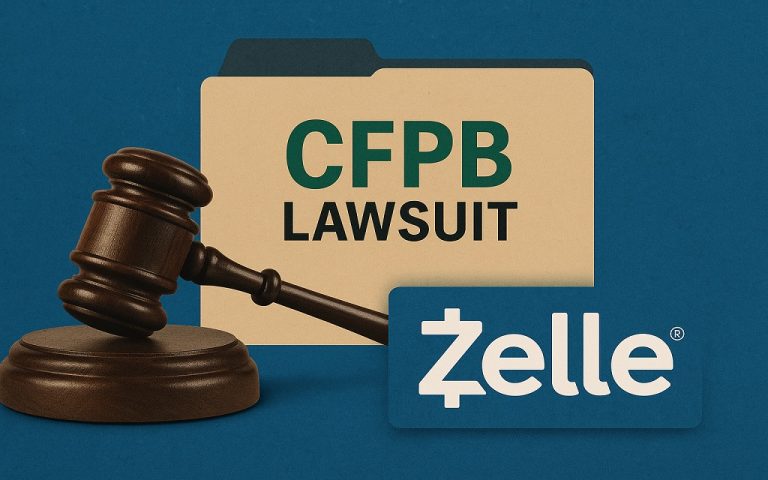Once the leading healthcare supplier for jails and prisons nationwide, Armour Correctional Health Services is currently dealing with a growing number of legal issues. Claims of rampant inmate maltreatment, wrongful deaths, and constitutional breaches have prompted lawsuits that reveal significant flaws in the prison healthcare system. This article examines the specifics of the complaint against it and the Armor Correctional Health Services lawsuit, the legal basis for the action, and essential information for affected families.
What Is Armor Correctional Health Services?
People residing in correctional institutions can get medical and mental health treatments from Armour Correctional Health, a private healthcare organisation. The Florida-based business was founded in 2004 and operated in several states, including Virginia, Florida, New York, Wisconsin, and Oklahoma. The company advertised that it provided high-quality, reasonably priced healthcare inside the prisons.
However, behind closed doors, families, civil rights organisations, and former employees tell a different tale of perilous negligence, delayed care, and budget cuts. Lawsuits have already been filed nationwide in response to these allegations.
Read Must: Cierra Mist Lawsuit: The Real Story Behind PepsiCo’s Starry Rebrand
Why Is Armor Facing a Lawsuit?

Allegations of Medical Neglect and Abuse
Inmates under Armor’s care reported delayed treatment, ignored symptoms, and a complete lack of emergency response. Families of the deceased say their loved ones were denied essential medication or left in their cells without proper examination, even in evident medical distress.
A Florida-based case became one of the most publicized examples. Jamal Surrency, an inmate in Nassau County, died in 2016 from a heart condition. His family alleges that the Armor staff ignored signs of cardiac distress. The county later ended its contract with Armor following the incident.
In another Milwaukee County instance, Shadé Swayzer, a pregnant woman, cried out for aid and gave birth in a prison cell without any support. Her baby died hours later. The incident led to multiple lawsuits and further scrutiny of Armor’s practices.
Eighth Amendment and Prisoner Rights
All citizens, even convicts, are protected under the U.S. Constitution. “Cruel and unusual punishment” is forbidden by the Eighth Amendment. According to court interpretation, this includes wilful disregard for a prisoner’s critical medical needs.
Plaintiffs in several of these cases allege that Armor’s employees violated this rule. It might be considered constitutional misconduct when a provider wilfully disregards serious medical concerns or postpones care to save money.
Legal professionals argue that Armor’s corporate culture prioritizes financial savings over maintenance. When jails hire private firms like Armor to reduce expenses, inmates often pay the price—with their health or their lives.
Recent Legal Actions and Class Action Developments
An Overview of Lawsuits Against Armour
Armour Correctional Health Services has been the target of many lawsuits since 2015. These include individual complaints and extensive coordinated efforts. While some operate throughout states, many are situated in Florida, where the company’s headquarters once stood.
Armour was fined $350,000 by Nassau County, New York, in 2018 for failing to adhere to inmate care regulations. Due to claims of medical malpractice, the American Civil Liberties Union (ACLU) in Wisconsin filed several complaints requesting that the state dismiss Armor’s accusations.
But in 2023, a federal wrongful death case was brought in Miami, claiming that Armour had ignored an inmate’s repeated requests for medical attention. Medical negligence, breaches of duty of care, and civil rights abuses were also included in the lawsuit.
Class Action Status and What It Means
Several legal firms are considering class action certification for Armour claims as of 2025. If approved, a class action may bring together hundreds or even thousands of individuals and families affected by the same issue in a single court case. In addition to streamlining claims, this would put further pressure on Armour to reach a settlement or reorganise.
Class actions often raise awareness, garner media coverage, and prompt businesses to update their internal procedures and policies. Joining a class action lawsuit may be the best course of action for many families affected by the issue, as it allows them to seek justice.
Effects on Families and Prisoners
It’s difficult to overestimate the psychological toll that prison neglect takes. Families talk about years of unresolved questions, sadness, and trauma. Some say they never received an explanation or autopsy report. Others learned of their loved one’s death days or weeks after it occurred.
Civil rights groups have intervened to help families demand openness, obtain legal counsel, and file complaints. Relatives of victims are increasingly sharing their stories in court records, press articles, and public hearings.
For surviving inmates, the fear of medical neglect continues. Many remain in facilities once managed by Armor or similar for-profit firms. The lack of trust in jail healthcare continues to erode morale and public confidence.
What Will Happen to Armour Next?
Several counties have terminated their contracts with Armour Correctional Health Services in reaction to the investigations and lawsuits. Some have chosen to receive medical treatment in-house, while others have opted to seek care from other providers.
As of 2025, many of Armor’s previous jurisdictions had ceased operation. The company has issued limited public statements and has avoided admitting fault.
According to legal experts, the resolution of the litigation will determine Armor’s destiny. The business may have to undergo forced restructuring or financial collapse if judgments or settlements total large sums of money.
Advocates countrywide are still working to strengthen laws governing jail healthcare providers and establish independent monitoring.
How to Take Legal Action Against Armor Correctional
If you or your loved one suffered due to negligence under Armor’s care, there are legal steps you can take:
1. Document Everything
Obtain witness accounts, prison correspondence, medical records, and, if relevant, death certificates. This proof is necessary to establish neglect.
2. Contact a Civil Rights Attorney
Look for lawyers with experience in prison healthcare lawsuits or wrongful death claims involving private providers.
3. File a Notice of Claim (If Required)
Some jurisdictions require this before filing a lawsuit. Your attorney will guide you through the process.
4. Examine Participation in Class Action
You might be able to join a class action if one is in progress. This may increase your chances of receiving compensation and lower your legal fees.
FAQs
Can inmates sue medical providers, such as Armor?
Yes. Under federal civil rights legislation (42 U.S.C. § 1983), inmates and their families have the right to sue jail medical staff for negligence and wilful neglect.
Is this a federal class action lawsuit?
Several law firms are pursuing class action certification. Depending on the location of the occurrence, some lawsuits are brought in federal courts, while others are brought in state courts.
How do I join the Armor Correctional Health Services Lawsuit?
You can join by contacting a civil rights or class action attorney who is involved in the Armor cases. Many offer free consultations.
What compensation can victims receive?
Damages may include funeral costs, pain and suffering, emotional distress, and punitive damages. Payouts vary based on case facts.
Conclusion: A Wake-Up Call for Prison Healthcare Reform
The Armor Correctional Health Services Lawsuit is more than a company scandal—it’s a warning sign for a broken system. Vulnerable lives are lost when profit goals take precedence over basic care.
Families, activists, and legislators are demanding reform as legal lawsuits proceed. This covers government control, independent medical evaluations, and openness in jail contracts.
Now is the moment to take action if you or someone you know has been impacted. Justice is about change, not just lawsuits.
Disclaimer: This article provides a general overview of the Armor Correctional Health Services Lawsuit, based on publicly available information, and is intended for informational purposes only. It does not constitute legal advice.
Musarat Bano is a content writer for JudicialOcean.com who covers lawsuits, legal news, and general legal topics. Her work focuses on research-based, informational content developed from publicly available sources and is intended to support public awareness. She does not provide legal advice or professional legal services.




